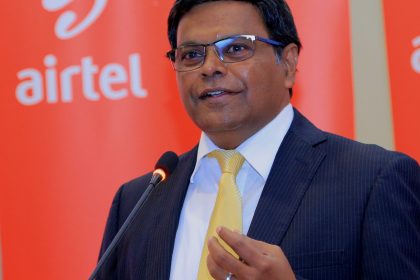Panic over interception of telecommunications
 December 12, 2018 – A wave of panic is sweeping across social media in Uganda, after a post suggesting that the government had started intercepting private communications began circulating across social media platforms.
December 12, 2018 – A wave of panic is sweeping across social media in Uganda, after a post suggesting that the government had started intercepting private communications began circulating across social media platforms.
The unattributed post claimed that Twitter, Facebook and “all social media and forums are monitored.”
“Inform those who do not know. Your devices are connected to ministry systems. Take care not to send unnecessary messages. Inform your children, Relatives and friends about this to take care.Don’t forward any posts or videos etc., you receive regarding politics/present situation about Government/PM etc. Police have put out a notification termed ..Cyber Crime … and action will be taken…just don’t delete … Inform your friends & others too.
Writing or forwarding any msg on any political & religious debate is an offence now….arrest without warrant…
This is very serious, plz let it be known to all our groups and individual members as group admin can b in deep trouble. Take care not to send unnecessary messages. Inform everyone about this to take care.Please share it; it’s very much true. Groups please be careful,” the post read in part.
However, Uganda Communications Spokesperson Ms.Pamela Ankunda dismissed the post as stale and misleading.
“That message has been in circulation for the past four years but it is fallacious because in the first place UCC encourages personal restraint among users of social media. Equally, there is nothing like blanket interception of communications because there is a law that regulates the circumstances under which an individuals communications may be interfered with,” she said.
Uganda passed the Regulation of Interceptions of Communications Act in June 2010 to create a legal framework for surveillance of the private communications of citizens. Among other provisions, the law requires agents of the state to secure a court order before they can begin intercepting the communications of an individual.
A source with the telecom industry confirmed to 256BN that telecommunications companies were ordered to contribute money which was used to buy the surveillance equipment.
“They made us pay for the machines but it is the government which controls and operates the equipment,” the source said.
The resurgence of the post at this time could be indicative if public anxiety over the heightened political temperature and narrowing space for freedom of expression in Uganda.
Recent months have seen violent crackdowns by police on opposition activists. Broadcasters have on a number of occasions also been stopped from hosting opposition politicians.

 Boeing opens African pathways to space
Boeing opens African pathways to space
 Uganda’s space agency wins slot to fly research package on International Space Station
Uganda’s space agency wins slot to fly research package on International Space Station
 Airtel helps towards transforming Uganda’s telecom landscape
Airtel helps towards transforming Uganda’s telecom landscape
 Airtel Uganda celebrates 10 years with giveaways
Airtel Uganda celebrates 10 years with giveaways
 Nine local fibre carriers sign on with Raxio Data Centre
Nine local fibre carriers sign on with Raxio Data Centre
 WhatsApp limits Covid-19 misinformation messages
WhatsApp limits Covid-19 misinformation messages
